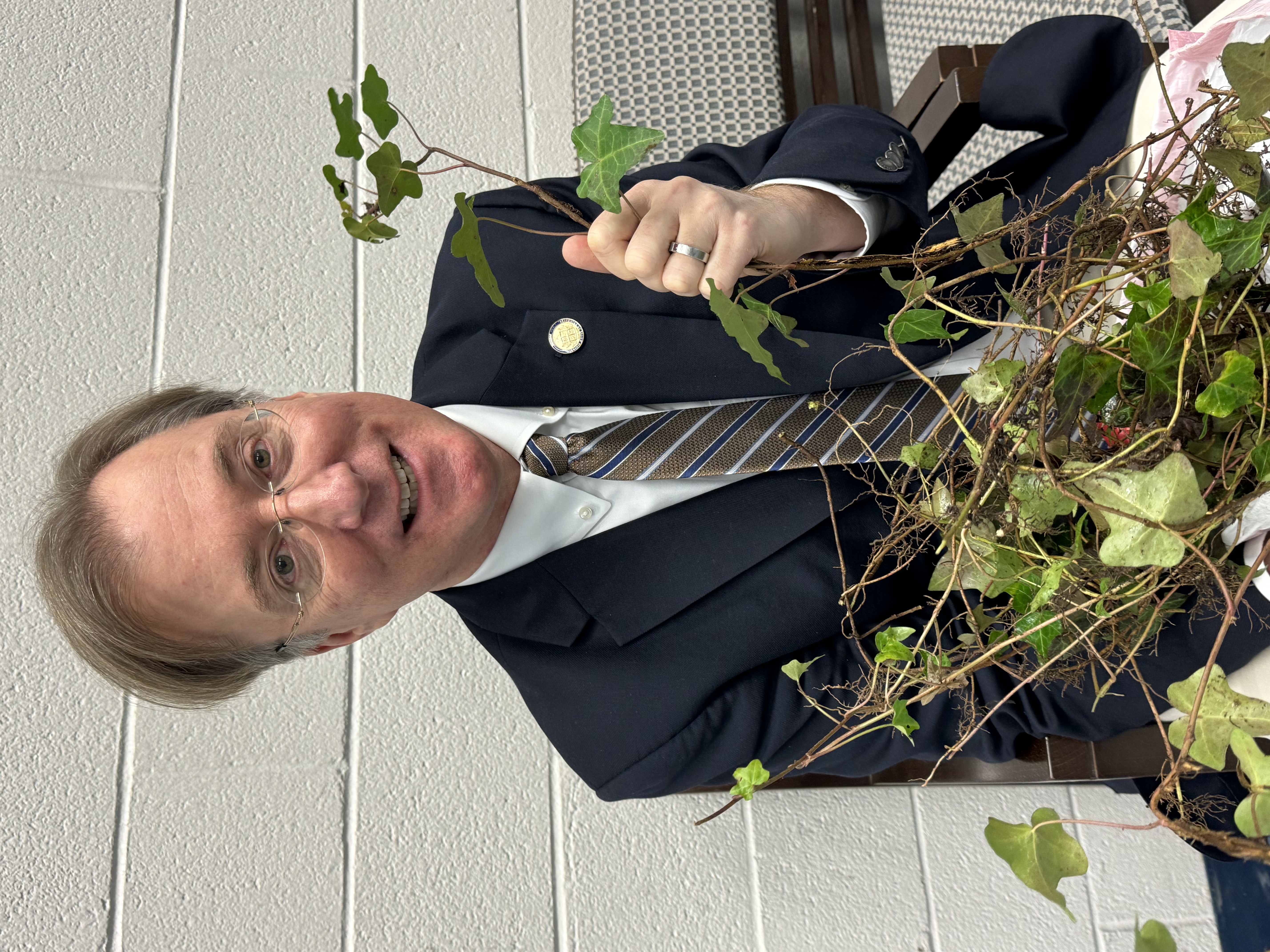Evergreen ground cover and vine, English Ivy was commonly used in area gardens, but has escaped to attack and endanger native trees. It also attracts rats and mosquitoes.
American colonial Paul Revere famously warned, “the British are coming”, as British forces advanced before the battles of Lexington and Concord in 1775. Our local modern day patriot, Delegate Paul Krizek, is warning “the English Ivy” is here”.
In this year’s session of the Virginia General Assembly which convened last week, he warns of the insidious attacker of native trees and other plants,
 Del. Paul Krizek is warning that English Ivy planting should be discontinued to protect our native environment and is providing the means for localities to establish local sales ban ordinances for the plant and its cultivars
Del. Paul Krizek is warning that English Ivy planting should be discontinued to protect our native environment and is providing the means for localities to establish local sales ban ordinances for the plant and its cultivars
arguably, more worthy of warnings than the very visible red-coated British troops. Krizek’s bill, House Bill 1167, would allow localities to establish ordinances to prohibit the sale of English Ivy and it’s hybrids or cultivars, from sale within its jurisdiction and to establish penalties, with limits, for sale prohibition violations.
Krizek (D-District 16), in his ninth year in the General Assembly, says a constituent alerted him to how pervasive the invasive woody vine, Hedera helix, has become in the area. Originally from England, it is believed to have been introduced to Northern America about 1727 by European colonists. It was appreciated for its evergreen foliage and ground cover habit. It’s Latin name, meaning ‘coiling vine’ describes part of its ability to overcome other plants. Its dense growth habit and ability to climb for sun allows it to out compete other vegetation on the ground, and can kill even a mature tree by climbing into the canopy denying nutrients to the tree.
The ivy is invasive, easily escaping the confines of individual gardens and spreading with the help of birds and other seed carriers of its small toxic black berries. Dense planting are known to attract and harbor rats, which use the plants for cover; and for mosquitos and spider mites which are drawn to the water held by the vines and the plant juices.
Home owners might be drawn to use ivy in landscaping given the respected look of the hallowed walls of ‘Ivy League’ colleges. Colleges in the league were named for Boston Ivy, which is not a true ivy. Boston Ivy (Parthenocissus tricuspidata), a deciduous, not evergreen vine, which attaches to surfaces with tendrils tipped with sticky disksSL. The plant is able to glue itself to the structure without damaging the building surface. In contrast, English Ivy uses aerial roots to attach itself and can penetrate cracks and joints in building brick or wood walls, causing structural damage. A steep price to pay for a year-round green ground cover. As a result many local gardeners have put English Ivy first on their list to remove and replace in their gardens.
For information about attractive native plant alternatives for English Ivy and other non-native plants, see www.plantnovanatives.org
